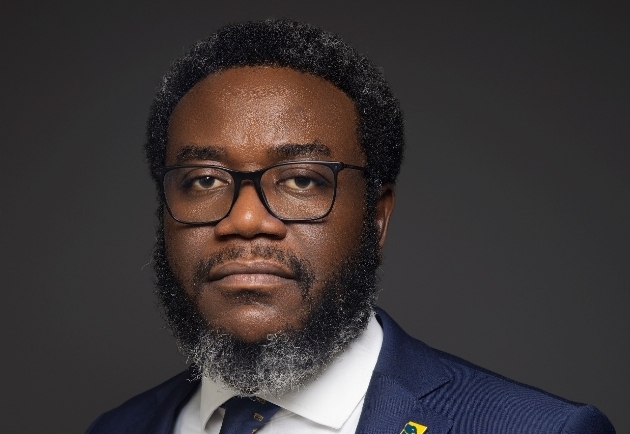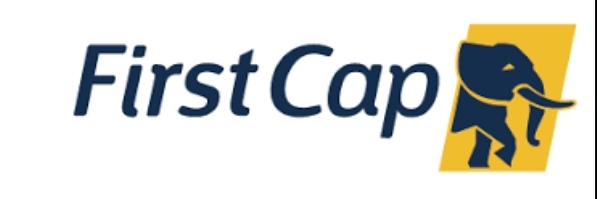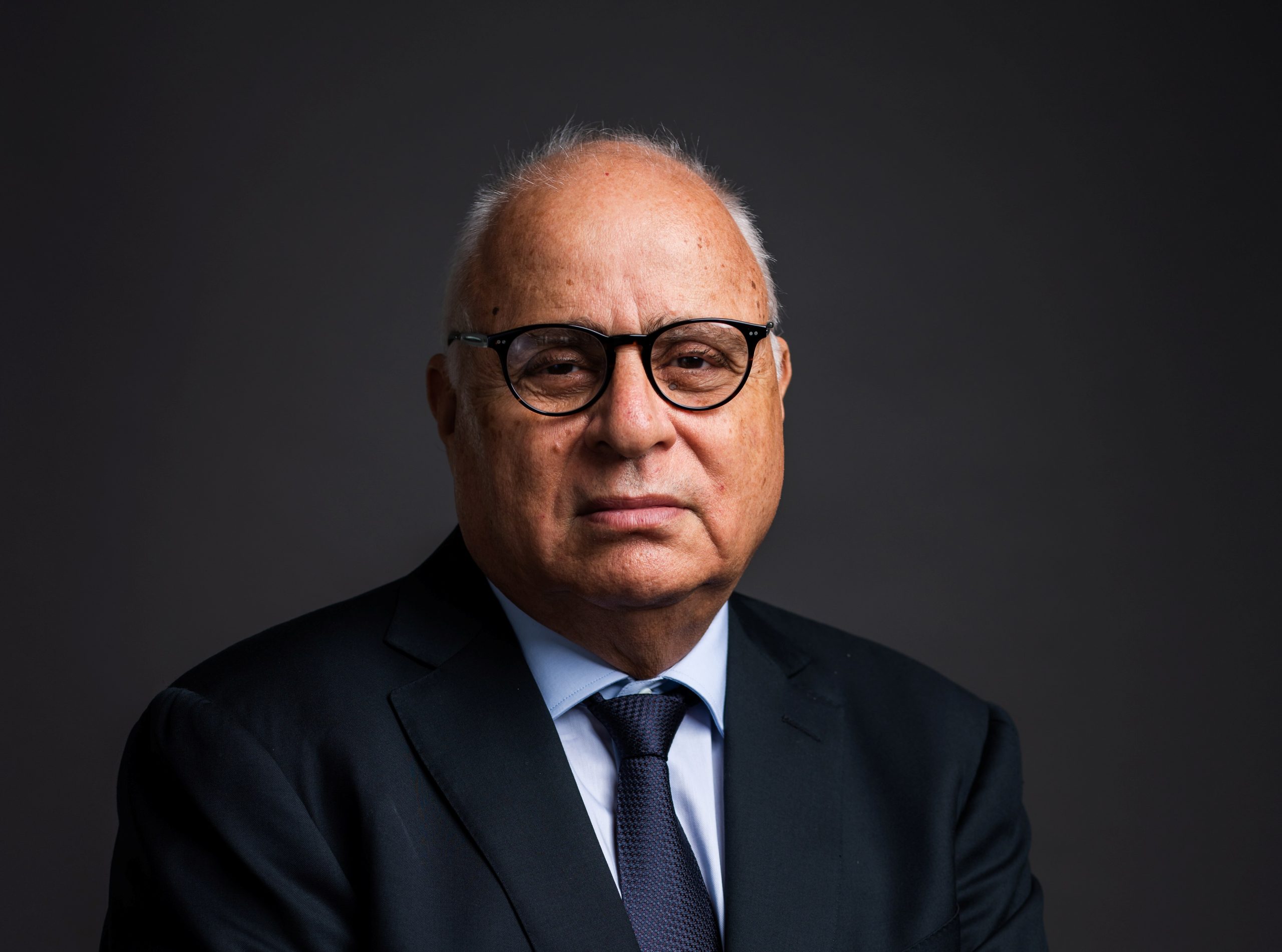In Nigeria’s dynamic financial space, capital market operators stand as pivotal drivers of economic growth and national development. By offering a broad spectrum of investment instruments tailored to diverse risk appetites and financial goals, they not only provide companies with access to expansion capital and enable governments to fund critical projects, but also empower investors with opportunities to grow their wealth.
Under the watchful regulation of the Securities and Exchange Commission (SEC), these firms form a dynamic ecosystem brokers facilitating trades, custodians safeguarding assets, and others ensuring the seamless flow of capital that underpins a thriving economy.
Recognizing their indispensable role in strengthening financial stability and fostering investor confidence through innovation, accountability, and strict adherence to industry best practices, The Guardian is spotlighting two trailblazers of this vital sector in this first edition of the special report.

Ukandu Eme Ukandu: Driving Innovation and Transparency in Nigeria’s Capital Market through FirstCap Limited
Ukandu Eme Ukandu is a visionary leader in corporate and investment banking with over 22 years of experience spanning credit risk analysis, structured finance, and strategic business development. He currently serves as Managing Director of FirstCap Limited, where he drives corporate finance strategy and delivers innovative investment banking and structured finance solutions to corporations and institutional investors.
Before joining FirstCap, he led one of the largest business groups within First Bank of Nigeria’s Corporate Banking Directorate, playing a pivotal role in high-impact financial transactions and strategic partnerships. His career also includes senior leadership positions at Citi, Stanbic IBTC, First City Monument Bank, and Zenith Bank Plc, where he advised multinational corporations, executed complex financial deals, and built high-performing teams.
Ukandu holds a BSc and MSc in Economics from the University of Calabar and an Executive MBA from the China Europe International Business School. Renowned for his ability to navigate dynamic financial markets and deliver transformational solutions, he continues to shape the future of banking and investment in Nigeria and beyond.
Talking about the unique role FirstCap plays in strengthening the market, Ukandu noted that the firm positions itself as a strategic enabler, facilitating access to priority capital for both corporate and public agencies. “We promote transparency and build investor confidence through our expertise and deep market knowledge. Our focus continues to be on developing innovative financial instruments, enhancing market liquidity, and increasing participation for both retail and institutional investors. For us, at FirstCap, our goal is to transform Nigeria’s capital market into a resilient, globally competitive platform that accelerates economic development,” he affirmed.
Ukandu underscores that FirstCap Limited’s unwavering commitment to transparency and responsible governance has been central to building trust among both local and international investors. This credibility he said, has enabled the firm’s active participation in landmark transactions, including Nigeria’s first Eurobond, the debut Diaspora Bond, the first National Sukuk, and the first Sub-national Sukuk. These issuances not only demonstrated the country’s ability to successfully access international capital markets but also attracted a diverse pool of global investors. Each milestone set new benchmarks for cross-border financing while reinforcing investor confidence in Nigeria’s macroeconomic outlook.
Expanding on FirstCap’s inclusive mandate, Ukandu explained that the firm plays a critical role in facilitating capital raising for institutions of all sizes, from large corporates to microfinance firms. The latter, in turn, provide much-needed credit to small and medium-sized enterprises (SMEs) and individuals, particularly in underserved rural communities. “We help these institutions enter the market by structuring and arranging funding solutions that empower them to extend credit to those who need it most,” he said.
Through these interventions, FirstCap has enabled the conversion of unbanked individuals into bankable ones, creating opportunities for impactful investments such as rural real estate development. This approach not only drives financial inclusion but also stimulates grassroots economic growth and fosters broader asset ownership, demonstrating the firm’s unique role in transforming Nigeria’s financial landscape.
Commenting on how FirstCap Limited has leveraged innovation and technology to enhance efficiency, transparency, and service delivery, the FirstCap Limited boss explained that technology forms the foundation of the firm’s strategy. According to him, FirstCap’s deliberate investment in digital adoption ensures that employees are equipped with the right tools to drive efficiency and deliver value. “We understand this is a journey which requires significant investment, and we are very clear on the enhanced outcomes that could be achieved by having technology as the foundation for business growth,” he affirmed.
Internally, the firm has automated almost every process, streamlined operations and reduced inefficiencies. Externally, FirstCap provides clients with digital platforms that simplify issuance processes, enable real-time data sharing, and facilitate seamless onboarding. Beyond process automation, the firm actively leverages data analytics and artificial intelligence to track market trends, manage risks more effectively, and design bespoke solutions for clients.
Responding to a question on specific initiatives or milestones that have significantly impacted FirstCap’s clients and the broader market, Ukandu emphasized that in Nigeria’s dynamic and often challenging economic environment, the firm has consistently delivered structured financing solutions tailored to client needs. He noted that investor appetite in the local market is highly selective, with decisions driven by risk-adjusted returns. “At FirstCap, our approach is to narrow in on this reality, designing bespoke instruments that align with both macroeconomic conditions and sector-specific opportunities,” he explained.
Through its deep capital markets expertise, FirstCap facilitates the raising of growth capital for mid-sized and large corporates, structuring transactions that unlock value, ensure pricing efficiency, and deliver investor satisfaction. These initiatives have empowered financial institutions to extend credit and catalyze real economic activity across sectors. “Whether through commercial paper programs, structured notes, or tailored investment products, FirstCap continues to serve as a trusted conduit between issuers and investors, bridging capital needs with market realities and contributing to a more resilient and inclusive financial ecosystem,” he stressed.
Looking ahead, Ukandu highlighted the integration of Environmental, Social, and Governance (ESG) principles into FirstCap’s product design and advisory services. This, he affirmed, is complemented by the firm’s investment in technology to broaden market access, streamline onboarding processes, and enhance investor engagement particularly for retail participants.
On the challenges facing Nigeria’s capital market and how FirstCap Limited is positioning itself to address them, Ukandu began by commending the Securities and Exchange Commission (SEC) for its proactiveness, policy clarity, and openness, describing the regulator’s direction as instrumental in providing stability for operators like FirstCap. Yet, he acknowledged that hurdles remain.
One major challenge, he noted, is investor preference for traditional finance instruments such as listed equities and government-issued debt. This conservative bias, driven by stringent regulation and return competitiveness among operators, limits broader participation in alternative investment classes. “In my view, there is significant potential from a product development standpoint, especially within private markets, real assets, and digital assets,” he said.
He further highlighted that a large proportion of local retail investors continue to remain on the sidelines due to gaps in financial literacy, lingering trust issues from past market reversals, and limited access to suitable investment products.
To address these challenges, Ukandu explained that FirstCap continues to actively engage with regulators, advocating reforms that will enhance market depth, strengthen transparency, and encourage more inclusive participation. This, he emphasized, is central to the firm’s mission of fostering stability and building a more resilient Nigerian capital market.
Sharing his views on the policies and reforms most critical to building a more resilient and investor-friendly capital market, Ukandu stressed that Nigeria must take bold steps to position itself as a globally competitive hub. According to him, reforms should focus on simplifying issuance procedures, strengthening regulatory clarity, and upgrading market infrastructure. He also underscored the need for policies that encourage retail participation, support innovative instruments such as green bonds and diaspora bonds, and align local regulations with international best practices in order to attract both domestic and foreign investors.
Beyond policies, he argued, the values that shape how these reforms are implemented will be equally important. Client-centricity, he said, must guide both policy and product design, ensuring that investor needs remain central to market development. At the same time, fostering a culture of innovation will be essential for unlocking new opportunities and sustaining long-term growth.
In his words, “Nigeria’s capital market has significant potential for growth and development. Our role is to promote transparency, innovation, and inclusivity, which will help build investor confidence and support Nigeria’s journey to becoming a leading financial hub in Africa.”


Chinonso Okurume: The Transformational Leader Empowering Business Excellence
Chinonso Okurume is the Chief Business Strategist at CardinalStone Registrars, bringing over 15 years of experience in investment advisory, asset management, and business strategy. Prior to her current role, she served as a Senior Investment Advisor at CardinalStone Asset Management and previously worked with United Capital Plc, Ecobank Asset Management (EDC Fund Management Limited), and Asset & Resource Management Company. She holds an MBA from the Lagos Business School and a B.A. in Mass Communication from Abia State University. Chinonso is a student member of the Chartered Institute of Stockbrokers, Nigeria, and serves as a Non-Executive Director at CardinalStone Securities Limited.
Reflecting on CardinalStone Registrars’ unique role in strengthening Nigeria’s capital market, Chinonso noted that the firm continues to operate within the stipulated regulatory framework while adhering strictly to the rules of engagement that guide the industry. “We have been proven to be dependable keepers of records, with a track record of excellence and commitment to the integrity of shareholders’ registers,” she affirmed.
She highlighted CardinalStone’s active role in the revamped Electronic Dividend Mandate System (EDMMS) portal, which provided a lasting solution to the difficulties investors once faced in accessing value for their investments. With this innovation, investors can now conveniently submit their bank mandates from anywhere in the world without physically visiting the company’s office. Beyond this milestone, CardinalStone Registrars continues to ensure accurate investor records, facilitate seamless data exchange across relevant platforms, and support key initiatives such as sensitization on e-dividends and the full dematerialization of shares. According to her, the firm’s emphasis on operational efficiency has significantly reduced processing times and enhanced data accuracy outcomes that have not only boosted investor confidence but also reinforced the integrity of Nigeria’s capital market.
She further highlighted the company’s contributions to driving investor confidence and deepening financial inclusion in Nigeria’s capital market, saying that CardinalStone Registrars has consistently fostered trust by upholding operational transparency and strong governance practices. By adhering to strict compliance and regulatory standards, the firm assures investors of fairness, accuracy, and credibility in its registers of members. On dividend administration, Chinonso noted that the company’s emphasis on timely dividend payments and prompt resolution of shareholders’ queries has enhanced investors’ trust in listed companies. The introduction of digital platforms, including e-dividend processing, online access to statements, and e-voting systems has further improved convenience, accessibility, and transparency for investors.
The Chief Business Strategist, CardinalStone Registrars emphasized that the firm continues to invest in robust data security and IT infrastructure to safeguard shareholders’ information and preserve the integrity of its databases. In terms of financial inclusion, the company has actively worked to extend market participation to a broader population. Through sustained e-dividend mandate drives and partnerships with banks and regulators, CardinalStone has ensured that investors regardless of their geographic location can directly receive dividends into their bank accounts. Beyond this, the firm has simplified the onboarding process by supporting first-time shareholders with easier registration and KYC procedures, thereby lowering entry barriers and encouraging wider participation in the financial markets.
Commenting on how CardinalStone Registrars has leveraged technology and innovation to enhance efficiency, transparency, and service delivery, Chinonso highlighted several operational advancements that have improved service quality for clients and shareholders alike. She explained that the firm prioritizes accuracy in registers through its automated shareholder data management system, while its digital platforms provide issuers with timely access to shareholders’ registers, reports, and dividend reconciliation statements. On transparency, Chinonso noted that the shareholder self-service portal allows investors to monitor their shareholdings, dividend status, and corporate actions in real time. “Investors now receive updates on rights issues, bonus issues, and dividends instantly,” she enthused.
She added that an audit trail of transactions within the firm ensures compliance and builds investor trust. The stockbrokers’ portal has further enhanced engagement with stockbroking firms by enabling requests and document uploads remotely. Additionally, CardinalStone’s collaboration with industry players to refine the Electronic Dividend Management System has significantly reduced the backlog of unclaimed dividends in the market. Chinonso also pointed to the introduction of hybrid and virtual meeting officiation as a key innovation that has boosted shareholder participation in Annual General Meetings, particularly for diaspora investors. Moreover, the firm’s adoption of digital communication channels has substantially reduced turnaround times across all categories of enquiries, ensuring faster, more efficient service for all stakeholders.
Sharing her views on the challenges facing the Nigerian capital market and how CardinalStone Registrars is addressing them to foster stability, she highlighted that high levels of unclaimed dividends continue to undermine investor confidence. She explained that the firm has responded by digitalizing its shareholder services, including e-dividend mandates, account updates, AGM e-voting, and shareholder communications. Dividend payment processes have also been automated to reduce delays and ensure timely disbursements. On the broader issue of unclaimed dividends in the market, CardinalStone Registrars has undertaken active campaigns and collaborated with issuing houses, banks, and the Securities & Exchange Commission to onboard shareholders onto the e-dividend mandate system. “Our enhanced KYC and identity reconciliation system has helped us unify multiple shareholder accounts, thereby reducing ghost accounts and promptly settling dividend-related issues,” she said.
Chinonso further emphasized that the firm continues to drive investor education and confidence-building through transparent communication channels, including help desks, call centers, and digital dashboards. These platforms allow shareholders to track dividends and holdings in real time, reinforcing trust and enhance-ng the integrity of the market.







